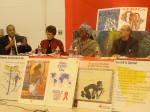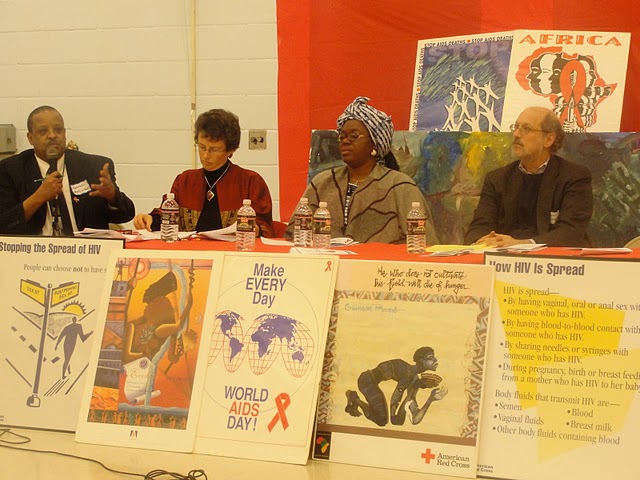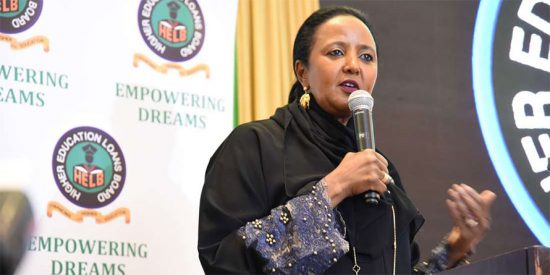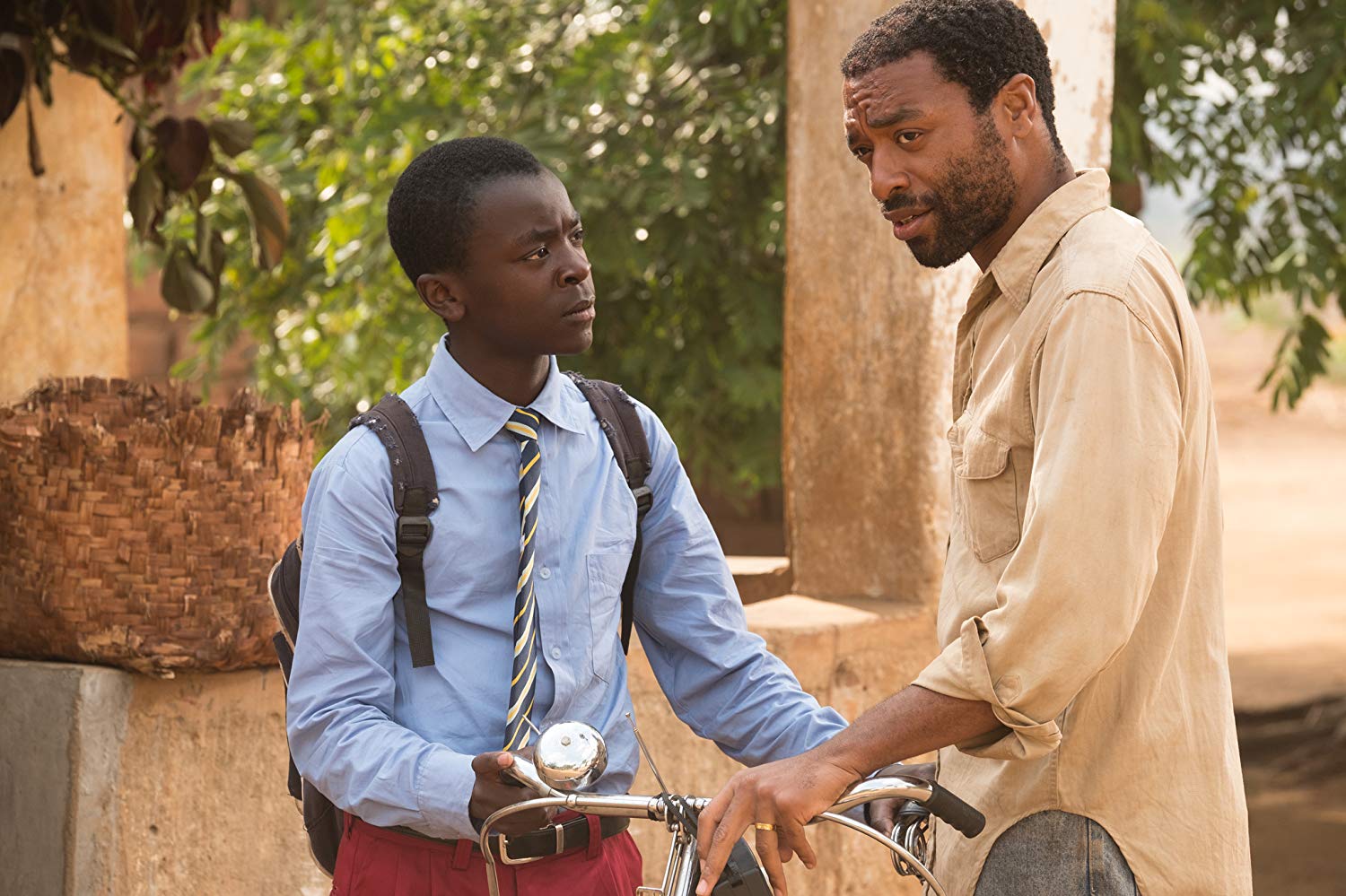
African-born immigrants make up less than 1% of Minnesota’s population, however in 2008, they constituted 11% of all HIV infections diagnosed, according to the Minnesota Department of Health (MDH).
The stark statistcs were shared during the sixth annual African World AIDS Day (AWAD) held in Minneapolis at the Brian Coyle community center in the cedar-Riverside neighborhood in December. According to the department, a noticeable trend of increasing numbers of new HIV cases was reported among the African-born population. In 2008, the department says there was a reported 37 new infected HIV cases among Africans.
The occasion consisted of presentations on HIV from health care and African agencies, food, entertainment and a panel discussion on HIV/AIDS. During breakout sessions, attendees listened to African drums, songs and words of wisdom from elders.
AWAD made this year’s theme, “United in the fight against AIDS.”
AWAD focused on emphasizing the difference between HIV and AIDS, the advancement of HIV in the body and its effects, and the ways in which the virus can be transmitted from one individual to another. It also featured testimonies from people who are currently living with HIV.
Many African youth, students, elders said they attended the informational event to learn more about what HIV/AIDS were exactly.
Sharmake Farah, 16, who attends Roosevelt High School in South Minneapolis, said he came to educate himself about HIV and ways to protect himself.
“Some people in the African community don’t know about AIDS and they don’t talk about it,” Farah said. “These kinds of events make them more aware of what’s going on and warns people to be more cautious.”
Testaments to living with HIV
Three years ago when Sheila Mills learned she was HIV positive, the results did not sink in quickly. Instead, it took her close to five months to come to terms with the HIV pandemic. She said she came to talk to people to enlighten and empower them to learn more about HIV/AIDS.
Mills, an advocate of HIV awareness and a counselor to African and African American communities, said individuals living with the virus should not be treated differently.
“I want people to know that a person who is living with HIV should not be treated differently than a person who is living with diabetes or cancer,” she said. “Everyone should be treated with dignity and respect.”
Taboo about HIV
Stigma is associated with HIV/AIDS and this shame is prevalent among the African community. Mills said individuals living with HIV need a support system and should not be cast aside.
“It is sad the way that we are treated because of the stigma attached having HIV,” Mills said. “I am applaud and angry about the way our children and families are thrown away because they are living with HIV.”
This stigma associated with HIV/AIDS has been increasingly widespread and cultural barriers as well as taboos about HIV/AIDS have made it difficult to open about the dialogue about the real issues at hand.
Margaret Korto, the keynote speaker and a Capacity Building Specialist at the Office of Minority Health Resource Center in Maryland, stressed the need for the African community to have an open and healthy discussion about HIV/AIDS.
“As Africans, it is hard for us to talk about sex,” Korto said. “We do not have sex, we have babies.”
Korto advised people to talk to their children and take the initiative to turn the discussion “into a joke” so that there is a level of understanding between parents and children.
“If your child wants to come and talk to you about HIV, how will they come and talk to you, if you have stigmatized that whole word,” Korto asked. “We have to get to a point where we are comfortable with talking about HIV.”
Korto said because of this prevalent stigmatization of HIV/AIDS, many HIV/AIDS educational organizations have been looking at ways to create culturally sensitive ways to start the discussion.
Abdullahi Sheikh works for Minneapolis Urban League as the Program Service Specialist and coordinates the African Wellness Program, which works to prevent and reduce HIV/AIDS and substance abuse among the African-born population. He said AWAD has made it possible for the event to have an all-around African theme.
“We realize we need to create something that is African that people can identify with,” he said. “We’ve got guest speakers and experts who are African, the music is African, and the food is African.”
As a result of this, they have been bringing Kenyan chorus groups, West African drummers and African food to make it easier to talk about these sensitive issues.
Sheikh, who is also the Chair for AWAD Planning Committee, said one of the things AWAD has done is start the HIV/AIDS conversation at a time when no one was talking about it.
“Over time, we’ve increased the critical awareness that was necessary,” Sheikh said. “It is a difficult conversation to have and we are at a level where we are able to talk about sex now.”
While there is no cure for HIV, there are some treatments to allow HIV patients to live a longer, enjoyable life. However, the speakers gave a lot of information on ways to prevent HIV spreading.
“We can’t tell people to stop what you are doing Change of behavior takes a long time, people have to make a decision about that change,” Sheikh said. “So, we’ve been able to give them some information about the most critical issues in relation to making those changes.”
Sacdiyo Gelle, a Somali mother, said she attended the event because she wanted to learn more about what HIV and AIDS were.
“Thanks to this event, I no longer think of HIV as an immediate death sentence,” Gelle said. “I want to learn more about this disease and teach it to my children and grandchildren.”
About Sahra Mohamud
Sahra Mohamud is a Mshale Staff Reporter based in Minneapolis. She is an alumni of the University of Minnesota School of Journalism and Mass Communications.
- Web |
- More Posts(15)






